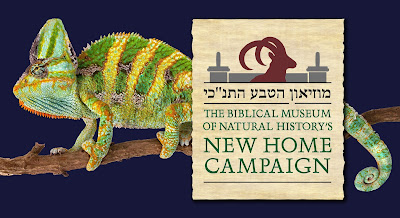Aside from the strange nature of the story itself (this is the aspect of charedi criminals that the Gedolim see fit to address?!), this raises some other issues about charedi crime. Now, every sector of society has its good apples and its bad apples. Still, one feature of charedi criminals is that they often enjoy high status in charedi society, which is willing to ignore their wrongdoings as long as they are playing for the right team.
One of the most senior charedi politicians in Beit Shemesh, representing a party that the local charedi rabbonim said that it was a mitzvah to vote for instead of the "anti-Torah" dati and mesorati parties, was just arrested for major fraud - though this is not widely known in the local charedi community, because the charedi newspapers refuse to report it (they only report wrongdoings by non-charedim). And, of course, we have one of the worst desecrations of God's Name in the country's history, the conviction of former Chief Rabbi Yona Metzger - a man who was widely suspected of very serious wrongdoings for decades, but who was elected as Chief Rabbi due to the influence of Rav Elyashiv. Then there was the notorious Leib Tropper, another person with a long history of trouble, who was given tremendous power by Rav Elyashiv and other charedi Gedolim.
But another problem is that crime in charedi society often seems to involve the cooperation of a large number of people. Earlier this month, nine charedim were arrested for a huge, sophisticated fraud involving the creation of fictitious yeshivos in order to receive various government benefits. They printed thousands of fake identity cards and even purchased buses to quickly transport hundreds of cooperative students to the Yeshiva in case of a surprise inspection. The scam had been going on for years; investigators said that the investigation was particularly challenging because of the charedi community's refusal to cooperate with authorities. It was the largest fraud ever uncovered in Israel's history.
This follows a similar case in Beit Shemesh last year, where police arrested twelve charedim for creating a fictitious yeshivah with 150 students in order to receive benefits. A few years earlier, police raided three non-profit institutions in Beit Shemesh and Beitar which were likewise running fake yeshivos to collect benefits. And when the government started to audit how many students in charedi yeshivos really exist, various yeshivos voluntarily removed a total of ten thousand fictitious students!
So is crime in charedi society actually more widespread than in non-charedi society? I don't know of any official figures. But Chazal tell us that this will be the case. Because Chazal state that if you don't give people the education to earn an honest living, they will resort to earning a dishonest living:
"Any Torah that is not accompanied by work, will end in neglect [of Torah] and will lead to sin." (Avos 2:2)
"Whoever does not teach his son a trade... it is as though he has taught him to steal." (Kiddushin 29a)
In the charedi community, children receive no significant secular education, and their employment prospects - when they finally get around to looking for employment - are very poor. And supporting large families is really, really expensive. Chazal tell us that in such a desperate situation, people will very likely resort to crime. That is why traditionally, partly in order to avoid this, Jews raised their children with the skills and attitude to work for a living. Contemporary charedi society is a total perversion of this tradition, with the results that Chazal predicted. It's not that charedim are more unethical - it's that they are more desperate.
And here's where we get to a report about the meeting between the jailer and the Gedolim which, on first glance, appears positive, but on further reflection, is deeply disturbing:
"Rabbi Edelstein told Gondar Malka that the prison system should put in extra effort to make certain that these prisoners are able to find honest work even after they are released so that they will not return to their lives of crime."Olam hafuch ra'isi. The responsibility is being placed on the wrong party! What Gondar Malka should have replied is: "Shouldn't it be the charedi world that puts in extra effort to make certain that yeshiva students be able to find honest work after they are released from yeshiva, so that they will not enter lives of crime in the first place?!"
(Hat-tip to DH of Monsey. Don't forget that you can sign up to receive this blog via e-mail using the form on the right of the page.)


























